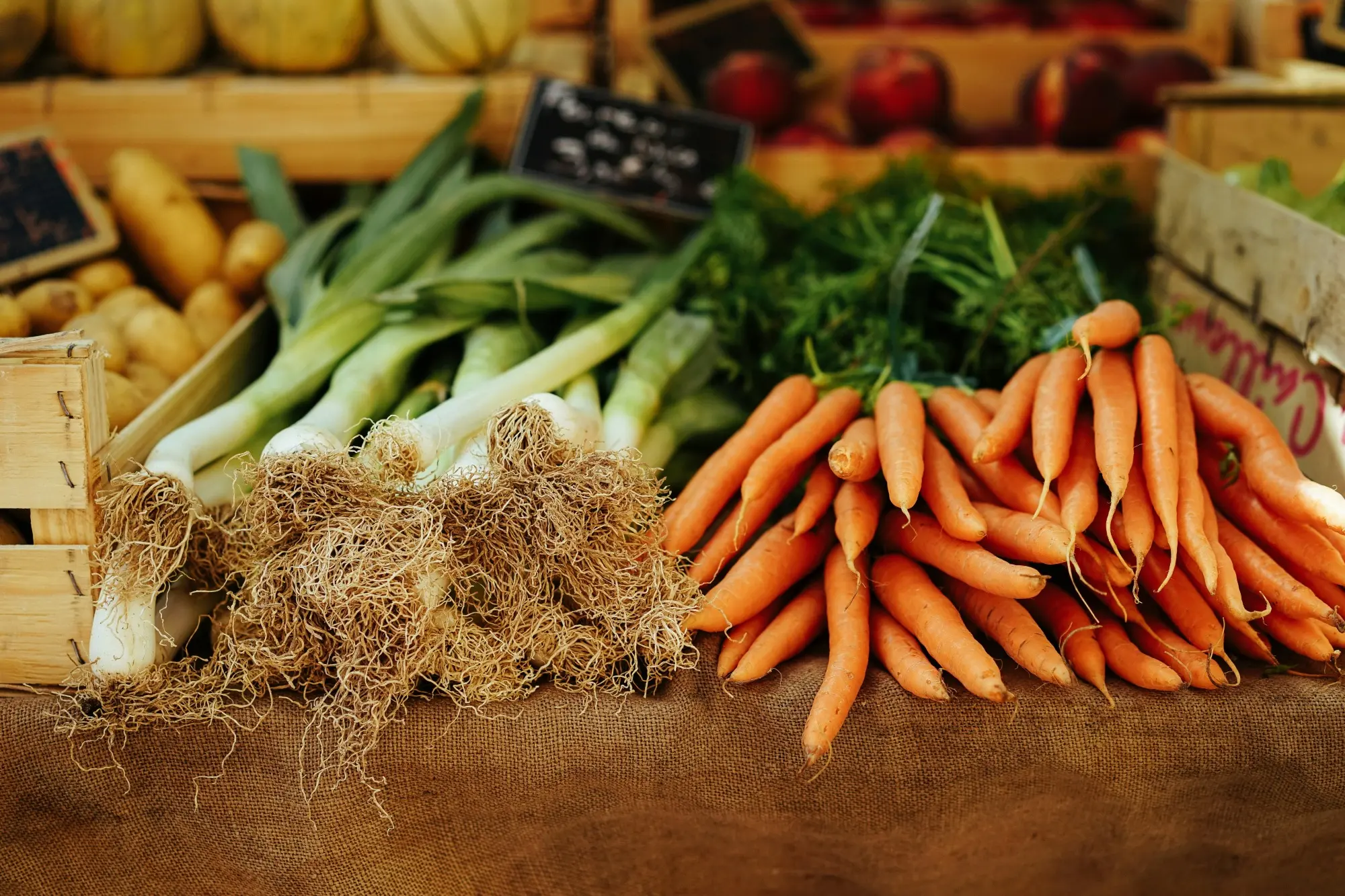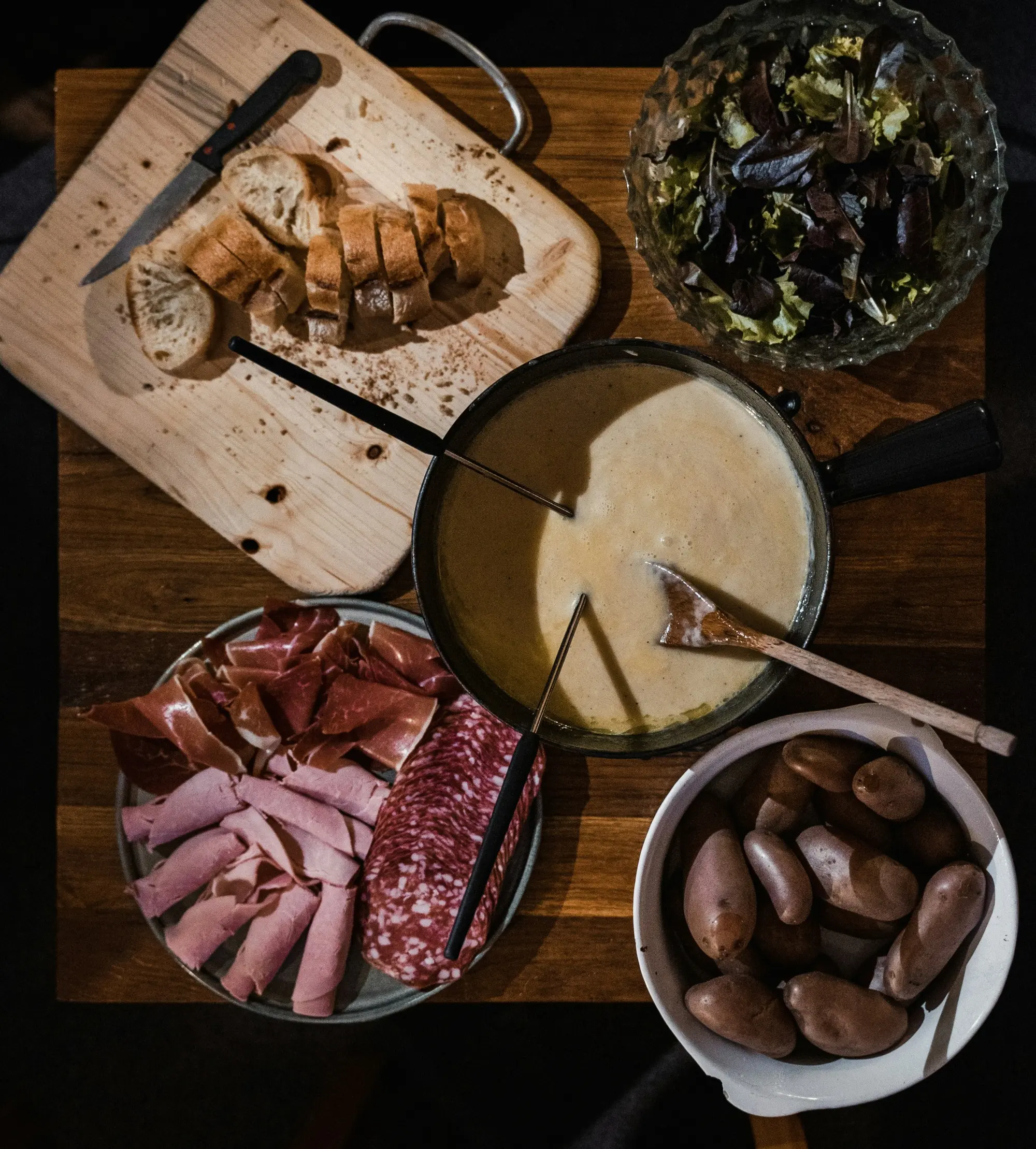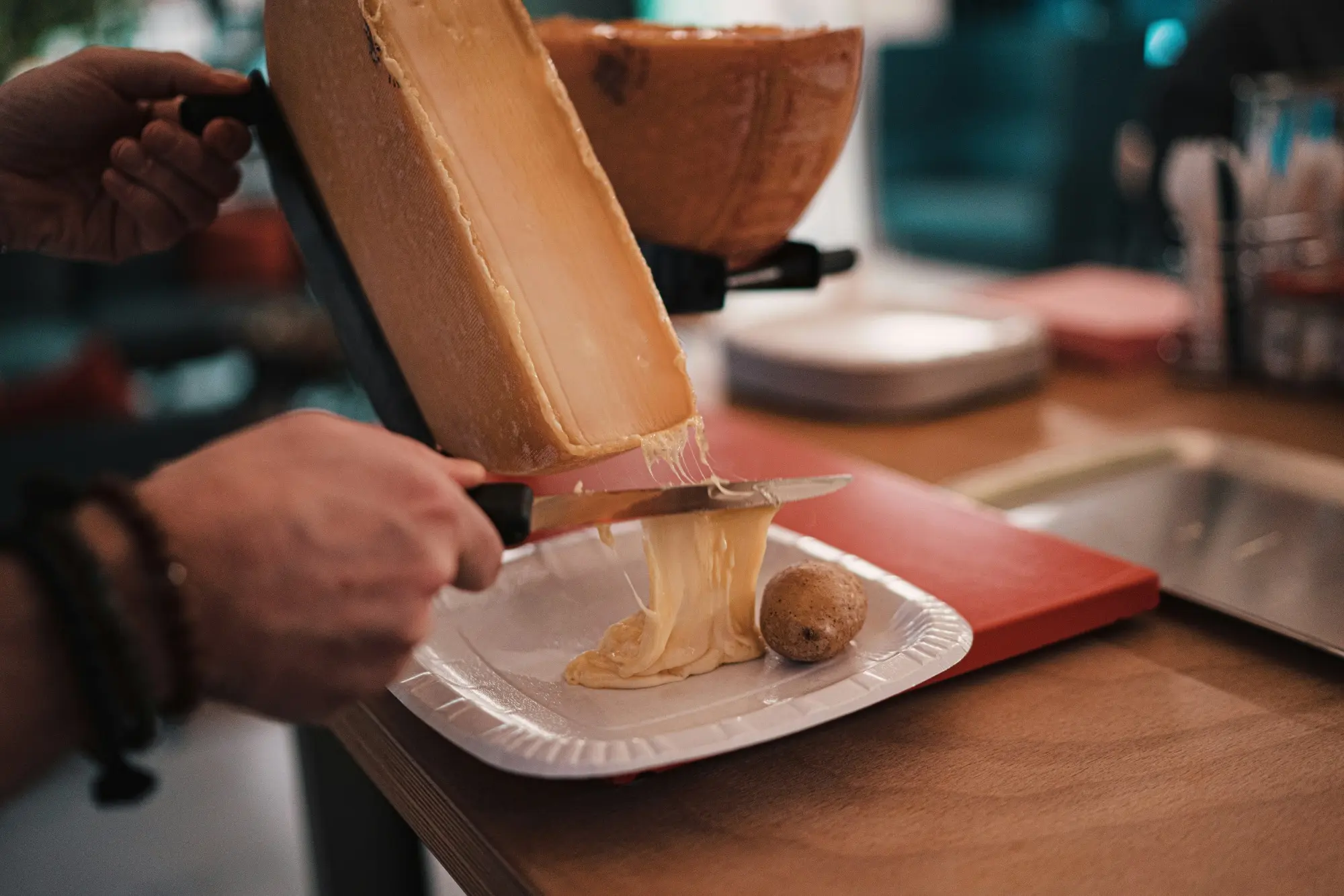Culinary tourism, the practice of travelling to experience and indulge in diverse food and drink offerings, has gained immense popularity in recent years. It is influencing how people choose their travel destinations. As travellers increasingly seek authentic experiences, local cuisine has become a focal point, often dictating where to go and how to spend their time and budget.

LOCAL CUSINES IN TRAVEL PLANNING
Local culinary traditions significantly influence travel planning as travellers often seek destinations where they can immerse themselves in authentic regional flavours. For instance, the French Alps attract tourists eager to savour alpine specialities like raclette and fondue, which have become synonymous with the region. Megève, with its charming ambience and gourmet dining options, serves as a popular food spot for those looking to indulge in exquisite mountain cuisine.
Furthermore, many resorts in the area, such as Châtel, enhance the travel experience and offer visitors the chance to enjoy locally produced foods, enhancing their connection to the land's agricultural heritage and culinary traditions. This emphasis on local dining experiences enriches the travel experience and helps support these communities' sustainability.

CULINARY TOURISM AND REAL ESTATE DEVELOPMENT
Culinary tourism significantly impacts real estate investments, as travellers seeking long-term vacation homes are often drawn to regions with rich food cultures, such as Val d'Isère and Chamonix-Mont-Blanc. The culinary offerings in these areas enhance the travel experience and create a desire for visitors to establish a deeper connection by owning property where they can partake in local culinary traditions year-round.
As food experiences become integral to the appeal, prospective buyers recognise that investing in these gastronomically vibrant locations can provide both personal enjoyment and potential rental income, tapping into the growing demand for unique culinary experiences among tourists. To cater to this trend, real estate developers are incorporating food and beverage offerings into their projects, providing residents with access to diverse culinary experiences within the comfort of their own homes.
FOOD FESTIVALS AND TRAVEL CHOICES
Regional food festivals are a significant draw for culinary tourists, showcasing the local cuisine and culture in an engaging and festive atmosphere. Events like the famed Tomorrowland Winter Festival in Alpe d'Huez celebrate traditional flavours with dishes like fondue and raclette, creating a sense of community and authenticity that travellers crave. Such unique events enhance the region's appeal, making it more attractive to tourists who prioritise music, outdoor activities, and immersive food experiences when planning their trips.
Further, for potential property buyers, these festivals signal a vibrant local culture and an ongoing influx of visitors, promising both personal enjoyment and lucrative rental opportunities as culinary tourism thrives. Ultimately, the attraction of these festivities contributes to the overall desirability of the area, cementing its status as a culinary hotspot.
SUSTAINABLE DINING AND ECO-FRIENDLY DESTINATIONS
Eco-conscious travellers increasingly seek sustainable destinations, including dining options emphasising farm-to-table practices, local sourcing, and minimal environmental impact. Regions like Samoëns, nestled in the French Alps, have responded to this trend by promoting eco-friendly initiatives, enhancing tourists' culinary experiences, and attracting investors interested in sustainable real estate development.
This growing demand for environmentally responsible tourism drives local businesses to adopt greener practices, fostering a community that values quality food and ecological preservation. As such, the appeal of sustainable dining options can significantly influence travel decisions, making destinations like Samoëns more attractive for travellers and potential property owners looking to invest in a greener lifestyle.

SOCIAL MEDIA INFLUENCE ON CULINARY TOURISM
Social media platforms like Instagram, TikTok, and Facebook revolutionise culinary tourism by allowing travellers to discover and share food experiences in real time. Travellers are increasingly influenced by visually appealing content, often seeking out restaurants, street food stalls, and local markets that have gained popularity through viral posts and hashtags. This trend encourages destinations to cultivate a strong online presence, showcasing unique dishes and culinary events to attract a global audience.
As a result, food experiences become a pivotal aspect of travel planning, with many trip itineraries centred around highly recommended culinary hotspots that resonate on social media. Ultimately, this digital influence enhances travellers' experiences and drives local economies as destinations see a surge in visitors eager to taste what they've admired online.
Social media can also impact real estate investments. Potential buyers can learn more about a region's food culture and gastronomic offerings, contributing to their decision-making process when purchasing property in the area.

FOOD AND CLIMATE: THE PERFECT PAIRING
Local climate is critical in shaping food traditions by determining available ingredients, influencing cooking techniques, and dictating seasonal dishes. Regions with warmer temperatures, such as Mediterranean areas, often embrace fresh produce, herbs, and seafood, leading to vibrant, light culinary styles. In contrast, cooler regions may focus on hearty, slow-cooked meals that use preserved ingredients or game, creating a distinct culinary identity.
Travellers are drawn to these climate-specific culinary experiences, seeking authenticity and uniqueness that reflect local agricultural practices and environmental conditions. This connection between climate and cuisine enhances the overall travel experience, offering visitors a taste of the local culture and an appreciation for the natural elements that shape it.
COMBINING CULINARY AND ADVENTURE TRAVEL
Regions that offer the perfect blend of travel experiences, such as those in the French Alps, provide unique travel experiences that cater to diverse interests. Travellers can enjoy exhilarating skiing or breathtaking hiking during the day, then unwind with locally sourced gourmet meals in cosy mountain lodges or charming alpine bistros. This combination allows culinary tourists to indulge their taste buds while immersing themselves in the stunning natural landscapes that define these destinations.
As the culinary tourism trend continues to grow, travellers increasingly seek experiences to enrich their journeys and deepen their connection to local cultures through food. With every meal savoured and every adventure embraced, food enthusiasts can create unforgettable memories that shape their travel decisions and inspire future explorations.

